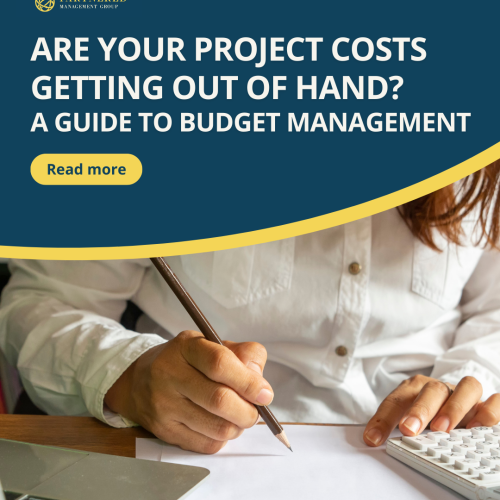Managing project costs is essential to the success of any project. Whether it’s a product launch, a new software implementation, or a company-wide process change, staying within budget is key to hitting deadlines and meeting expectations. If you find that costs are slipping through the cracks or creeping up faster than expected, don’t worry. There are clear steps you can take to get things back on track and ensure financial success.
Outline the Project and Set Clear Goals
Before you can accurately estimate costs, you need to have a solid understanding of what the project involves. Define the project goals clearly—what are you trying to achieve, and what will it take to get there? The more specific you can be about your deliverables, the easier it is to anticipate costs and avoid overspending. A clear scope also helps to prevent any overlooked details, which can stretch both your timeline and budget if you’re not careful.
Break the Budget into Phases or Milestones
To avoid getting overwhelmed by the total project cost, break the budget into smaller, manageable chunks. Assign portions of the budget to different stages or milestones of the project. By doing so, you can track the spending as each phase is completed and adjust the budget if needed. Whether it’s the planning stage, execution, or post-launch analysis, splitting the budget up into phases makes it much easier to identify where any overspending is happening early on.
Expect The Unexpected
No matter how much planning you do, there will always be surprises. Unforeseen issues, such as delays, extra resources, or changes in pricing, can throw your budget off track. This is why it’s crucial to build in contingency funds. A good rule of thumb is to allocate 10-20% of your total budget for unexpected expenses. This buffer gives you the flexibility to adapt without derailing your project.
Track Every Expense
Small costs can add up quickly, especially if they’re not tracked properly. From software subscriptions to extra hours worked, keeping track of every expense is key to maintaining control of your budget. Using a project management tool or a budget tracker ensures you have visibility on how much is being spent at every stage. Regularly update your budget and compare it with your actual expenses to spot any discrepancies early.
Regular Budget Check-Ins
Checking in on your budget should be part of your regular project review meetings. Don’t wait until the end of the project to see how you’re doing financially. Schedule recurring budget check-ins to assess whether you’re on track. If you notice costs exceeding estimates, these meetings allow you to adjust quickly, whether that means cutting back on certain aspects or reallocating funds from other areas of the project.
Make Adjustments Where Needed
Projects rarely go exactly as planned, and you’ll likely need to make adjustments to stay within budget. Be prepared to make tough decisions about where to cut back or shift resources. Sometimes, re-prioritizing tasks or scaling back the scope in certain areas is the best way to keep things on track financially. Flexibility is key here, as being too rigid can result in unnecessary overspending.
Negotiate with Vendors and Contractors
You don’t have to accept the first quote or pricing you’re given. Take the time to shop around for services and materials, and don’t hesitate to negotiate. Getting competitive bids can help you identify the best deal. If you’re working with contractors, explore opportunities for discounts, package deals, or payment terms that better suit your budget.
Maintain Open Communication with Your Team
Regular communication with your project team is vital for staying on top of costs. Keep everyone informed about how the budget is progressing and encourage them to notify you of any changes that could impact spending. This might include new resource requirements, potential delays, or even suggestions for cost-saving measures. When everyone is aligned, it’s easier to make adjustments without negatively affecting the overall budget.
Prioritize Essential Tasks
Every project has priorities—some tasks are more critical than others in achieving your end goals. As you progress through your project, continually check which tasks are absolutely necessary and which can be delayed or cut. If something isn’t necessary to meet the project’s main objectives, it may be worth reconsidering its place in the project to save money.
Bringing It All Together
Effectively managing your project’s budget requires planning, flexibility, and ongoing oversight. By breaking down costs into phases, tracking every expense, and staying engaged with your team, you can ensure that your project stays within its financial limits. Don’t be afraid to adjust your plan or prioritize certain tasks if it helps maintain control over costs. With these practices in place, you’ll be equipped to handle the financial aspects of your next project with confidence.
If you’re still feeling uncertain about how to manage your project budget or need extra support to ensure everything stays on track, Partnered Management Group is here to help. Our team can help you set realistic budgets, monitor expenses, and make smart financial decisions that keep your project on course. Let us help you navigate the budgeting process for your next project—so you can focus on delivering great results without the stress.
